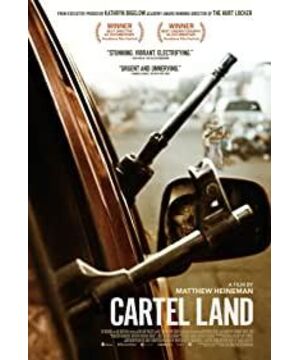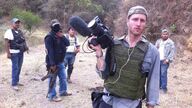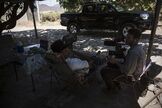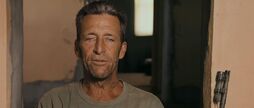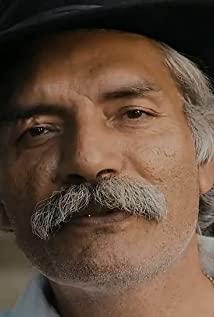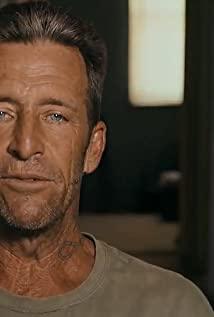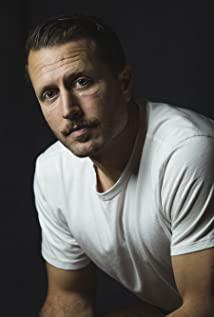The director was very daring to do it. He went deep into the Mexican Self-Defense Forces and followed many actions taken to confiscate drug cartels. They were all done with real guns and ammunition, not inferior to the shooting on the battlefield. Once when I was driving, I was suddenly ambushed and the camera was turned on to record the whole process: getting out of the car to find a shelter, getting in the car to track the murderer, and the shaking lens could feel full of adrenaline.
The character of EI Doctor, the leader of the Self-Defense Forces, is also interesting enough, chic and suave, not surprised at all, and very appealing. He organized a militia to fight the drug-trafficking organization "templars". After a plane crash, he survived a plane crash. The militia organization expanded rapidly. It seemed like a leader's biography. However, in the second half of the painting style changed, the other side of El Doctor was revealed. After he came out, he was tough and did not compromise with the government. The negotiations were at a deadlock and his position in the organization was not as good as before. He chose to escape and was arrested and sentenced for having an affair regardless of his family. In the end, the militia also violated his original intention when it was founded. It was incorporated by the government and infiltrated by drug cartels.
Thinking of what Ge You said in "A World Without Thieves", "The hearts of the people are scattered, and the team is not easy to lead." An organization initially relies on ideals and visions. After it develops and grows, it cannot do without good management and necessary political skills. Later, the militia organization suffered internal and external troubles. Drug dealers infiltrated the organization. The quality of the members was uneven. They broke into private houses and committed crimes in violation of regulations. The outsiders faced suspicion and condemnation from local residents, and in the name of upholding the rule of law, they were determined to do so. Suppressed government.
The part of the U.S. Border Patrol is slightly less. The director tried to use parallel narratives between the U.S. and Mexico to show how the two peoples responded to the threat of drug dealers. However, the characters and stories on the U.S. side were slightly insufficient. Thinking of Zeng Baoyi's interview with the American Patrolman in "Before Tomorrow", a woman's perspective does feel different, she will be much softer and more sensual. In this film, we can feel a harsh and cold smell of death.
At the beginning and the end of the film are a group of masked drug producers, who are making drugs while talking about their "view on life." It is a pity that the director cannot disclose their identities or tell their stories because of the privately signed shooting agreement, but the drug traffickers are the most fascinating part. The opening paragraph used this paragraph, which drew the audience's appetite, but they did not have their perspective in the film, but at the end it made a point and ended in a hurry.
While watching the film, I had to be thankful that I was in a country with a strong government. Unlike Mexico, China does not have guns, nor does it have a large organized criminal group. The government has a monopoly on violence, and wealthy businessmen cannot influence the country’s policies. It seems that some of the so-called democratic freedoms in the West are missing, but the people at least have an absolute enough sense of security. This is what the people on the border between Mexico and the United States who are deeply troubled by drug cartels desire but are not available. For the people, how can they want? Fighting and killing vigorously, all I want is to live and work in peace and contentment, and to create a better life through hard work.
View more about Cartel Land reviews


